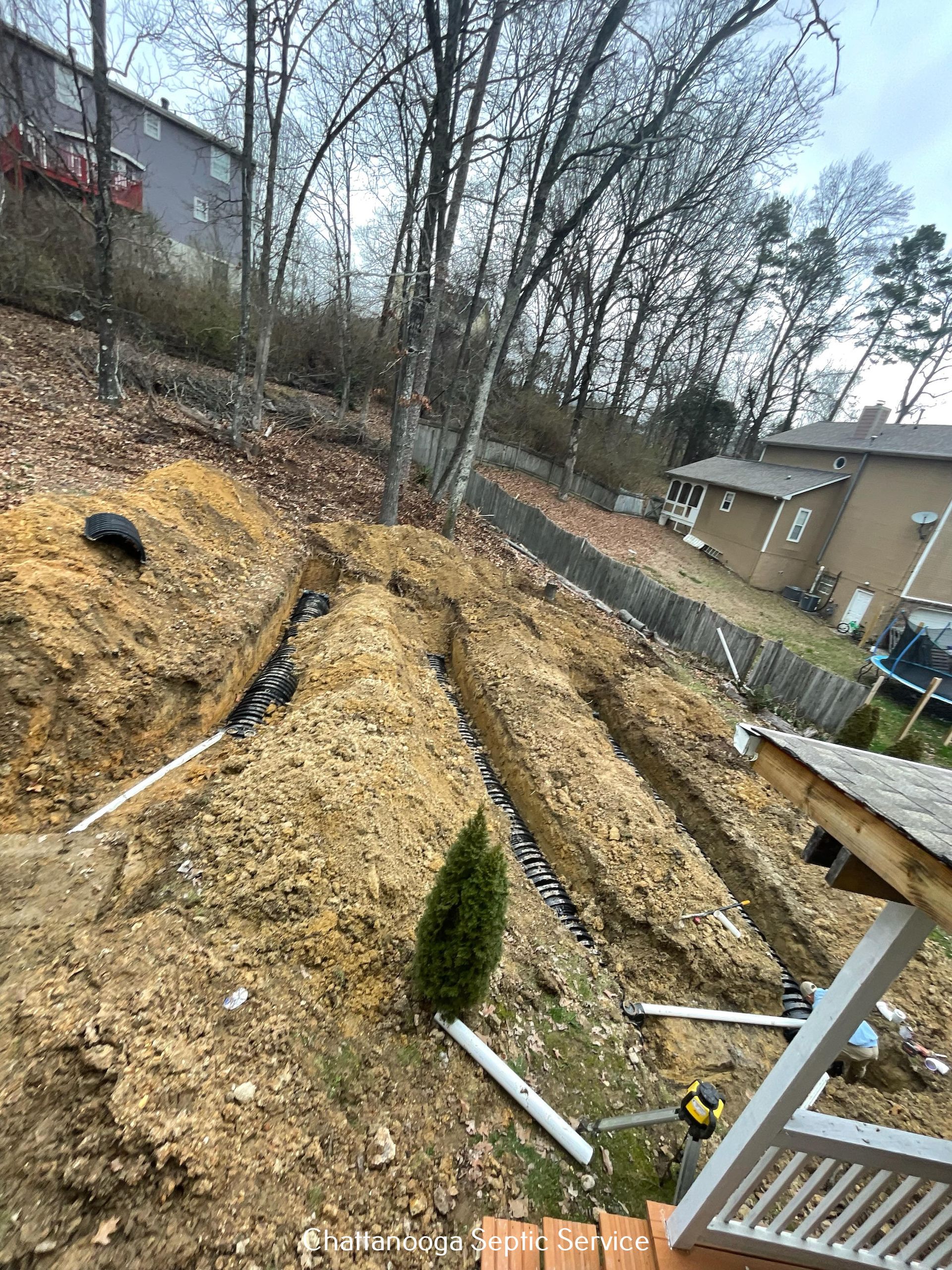It costs over $5,000 to replace an average septic tank. However, if properly designed, constructed and maintained, your septic system can provide long-term, effective treatment of household wastewater. If your septic system isn’t maintained, you might need to replace it, costing you thousands of dollars. A malfunctioning system can contaminate groundwater, that might be a source of drinking water.
And if you sell your home, your septic system must be in good working order.(1) The guide below will help you comprehend how to maintain your septic system.
What Exactly is a Septic Tank?
A septic tank and a drainfield are part of your septic system. The septic tank container is underground and is in charge of collecting particles and scum from your wastewater. According to the EPA, more than one in every five households in the United States relies on an onsite system or small community cluster system to treat their wastewater. Households that employ a septic tank system are often located in rural locations where public city sewers do not exist.
While potential house buyers may first consider having a septic tank to be a disadvantage, they should be aware that with regular maintenance, these septic tanks can survive 30 years or more.
What Exactly is a Drainfield?
When wastewater leaves the septic tank, it flows to the drainfield. The drainfield is a shallow excavation in the soil that is part of the septic system. It is sometimes called a leach field. Flooding can occur if the drainfield becomes overwhelmed with wastewater and/or outside fluids.
This may result in a sewage backup.
What is the Significance of Septic System Maintenance?
Given the hefty cost of replacing a septic system, appropriate maintenance is critical to maintaining your septic system in good working order. The more proactive you take care of and maintain your septic system, the longer it will survive. Septic tank maintenance aims to prevent solids accumulation and groundwater contamination.

How frequently should You Pump Your Septic Tank?
The frequency with which you complete
septic tank pumping Chattanooga is determined by your household size, total wastewater output, amount of solids present, and tank size. While the average septic system is drained every three years, systems having electrical switches, pumps, or mechanical components should be inspected more often.” To be safe,
septic tank pumping Chattanooga, TN, and testing should be done once a year. The following is a simple four-step maintenance regimen that, if carefully followed, can prevent solid build-up and ensure that your system operates effectively for many years to come.
Septic System Maintenance in Four Steps
- Responsible Pumping - Each household should have regular septic tank pumping Chattanooga in place to prevent solids collection in their system. Since you need regular maintenance, ensure you pick septic tank pumping companies in Chattanooga area that have been doing this job for over five years. This will ensure that the job will be done right and that your septic tank serves your needs for years. Service frequency varies by home, so ask your specialist how frequently your septic system should be flushed and the cost to pumping septic tank in Chattanooga, TN.
- High-Pressure Water Jetting – Despite how well a septic system is preserved, sediments and other waste will collect in the drain pipes. These sediments clog the pipelines connecting the septic tank to the drainfield. As a result, you should perform high-pressure water jetting every five years to remove any debris that may be preventing your system from running correctly.
- Use a Bacteria Additive - Septic owners should use a live organic bacteria that degrades compounds and solids, such as detergents and soaps, that occasionally enter your septic system. When common home chemicals enter your septic system, they kill the naturally existing microorganisms that allow your system to work properly. Bacteria additives are a cheap insurance policy that keeps your pipes clean and clear, your system odor-free, and your system running smoothly.
- Install an Effluent Filter - Whenever you service your system, your filter, which prevents particulates from entering your drainfield, must be cleaned or changed. Some older systems lack a filter. Inform your specialist if your septic system lacks a filter.
Septic System Maintenance Dos
Perform Maintenance Regularly
You should consider hiring a service professional to evaluate your septic system once a year to keep it working smoothly. The EPA recommends that household sewage systems be flushed every three to five years. The professionals you hire should be able to advise you on how frequently your septic system should be pumped. Pumping a septic system as needed will keep it from failing.
Limit the Amount of Rubbish you Dump Down the Garbage Disposal
The more rubbish you put down the garbage disposal, the more probable it is that your septic system may be harmed. To avoid clogging your system, avoid putting cooking grease, coffee grounds, or fats down the garbage disposal. Instead, toss these goods in the garbage.
Purchase High-Efficiency Appliances
According to the EPA, proper water use can help your septic system run more smoothly. The more water you waste (by leaky toilets, excessive washing machine use, etc.), the more water enters your septic system. This can result in drainfield floods and damage. Using high-efficiency appliances is the simplest approach to avoid water waste.
Look for Energy Star appliances, which use half the amount of water that standard appliances do.
Keep Inspection Reports and Maintenance Records
When servicing their septic system, homeowners should keep all maintenance records and inspection reports. Inspections should include comprehensive assessments of prospective or present leaks, scum levels, and potential damage. If damage is reported, you should call an experienced repairman as quickly as possible to fix it.
Keep your Drainfield in Good Condition
Avoid planting gardens and trees near your drainfield to help it last. This will keep roots from sprouting and interfering with your septic system. You should also avoid parking vehicles on the drainfield.
If your septic tank emits bad smells, something might be wrong. You should call a professional and have it inspected every year so you can identify problems early on and have them fixed before they worsen.
For more information on Flush Fellas Septic & Excavating and our services, feel free to reach us via phone today: (423) 498-9839.

About the author
Charles Chandler
Charles Chandler is the founder of Flush Fellas, a septic and excavating company based in Chattanooga, TN. With a passion for providing top-notch services to his clients, Charles has established himself as a prominent figure in the industry. He has extensive knowledge of septic systems, excavation, and drainage solutions, which he uses to offer customized services that meet the specific needs of his clients. Charles is committed to providing exceptional customer service and building long-term relationships with his clients. He is dedicated to staying up-to-date with the latest industry trends and innovations to ensure that Flush Fellas continues to offer the best services possible.


